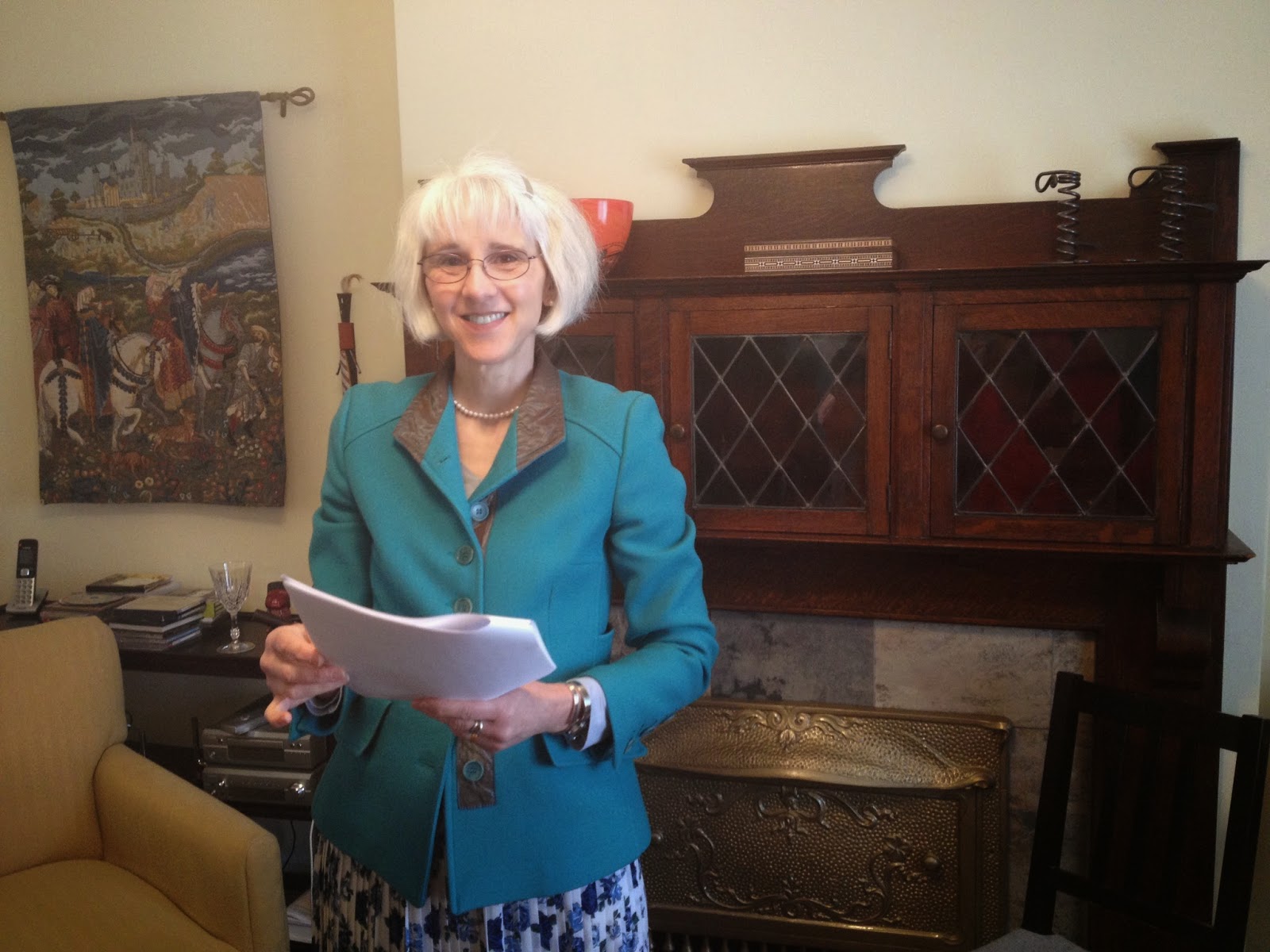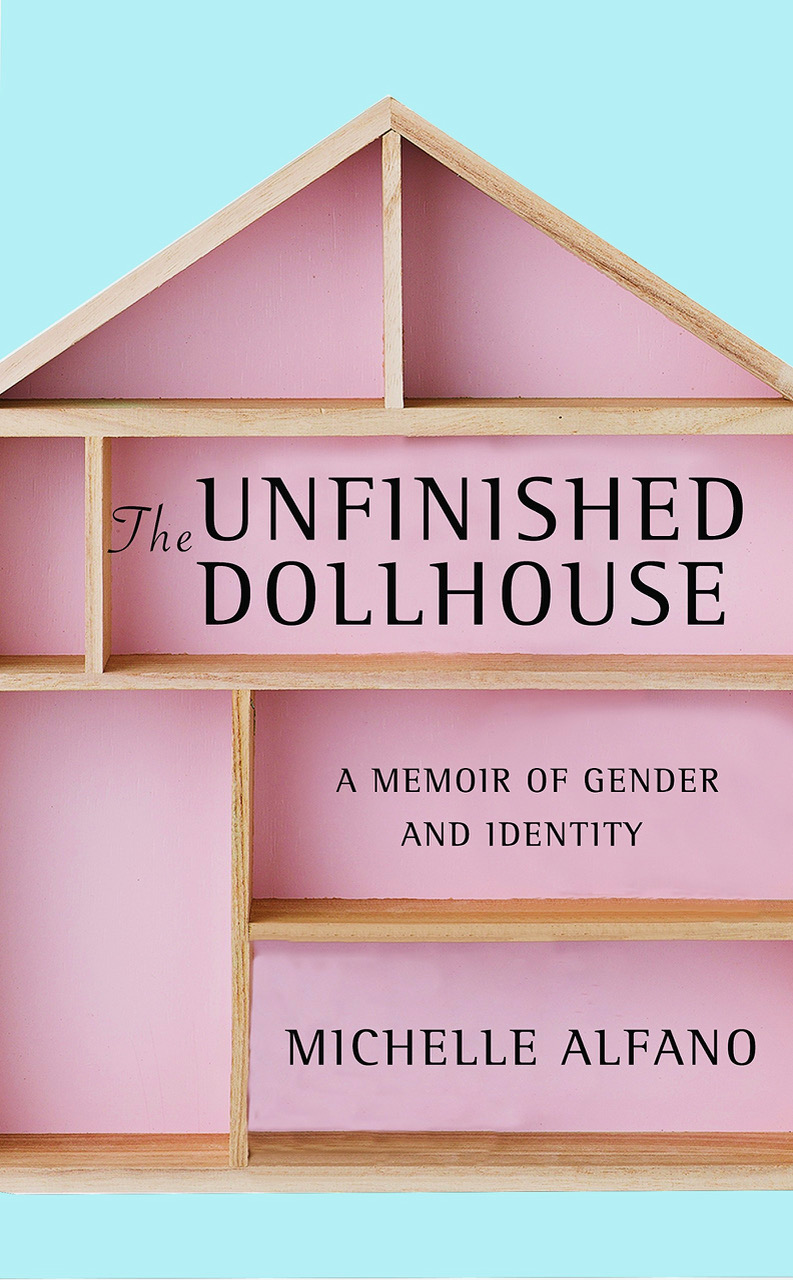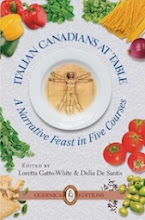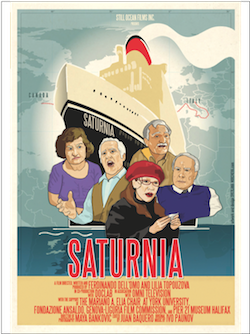Tuesday, March 31, 2015
March Cultural Roundup
Films:
Whatever Happened to Baby Jane (U.S., 1962)
Coriolanus (U.K., 2012) (please see review here)
Jean-Michel Basquiat: The Radiant Child (U.S., 2010)
Books:
Sister Crazy by Emma Richler
Bad Feminist by Roxane Gay
Readings
The Delaware Literary Salon, March 22nd with Nigel Barnes, Diane Enns, Josee Sigouin
Descant, The Grand Finale, Revival, March 25, 2015
Exhibits:
Basquiat: Now is the Time, AGO, March 29, 2015
Sunday, March 22, 2015
The Delaware Literary Salon
Twice a year, my gracious and generous friends Antonio and Fadi host a literary salon in their beautiful home. They provide the food and drink and delicious desserts. The food is all home-made and spectacular. I am lucky enough to emcee and sometimes read.
 |
| The repast courtesy of Antonio and Fadi |
 |
| An old friend, the musician and songwriter, Nigel Barnes |
Nigel Barnes is a singer/songwriter, who writes songs and then sings them. He finds it works best that way. He released a CD in 2006, called It Is What It Is. He is in a new band playing some of his songs and some covers. They are still trying to decide on a name, but are having a good time. Nigel has been performing on and off since he was about 13 years old. Let's not talk about how long that is, but over the years he has had the privilege to share a stage with some wonderful people, many of whom have become his friends.
 |
| Diane Enns, essayist and professor |
Diane Enns is an ambivalent philosopher, trying not to let institutional life beat the beauty out of words or the life out of ideas. She writes about things she sees or reads, fledgling ideas, encounters and confluences, and random thoughts that won’t leave her alone. She writes in order to understand something she has witnessed or experienced, to provoke thought, or to indulge in the sheer pleasure of expression. Philosophy too often forgoes the beauty of reflection and its power to move, in favour of lifeless logic and argument. Thinking, imagining, feeling, contemplating, daydreaming, wondering — these are her preferred names for philosophy. It is “life worked out on the page.”
 |
| Josée Sigouin, novelist and friend |
Josée Sigouin is an aspiring writer born in Montréal and now living in Toronto. She has traveled extensively in Asia, sparking an interest in South Korea, the setting for The Fifth Season, a first novel still in development. She currently works at the University of Toronto where she serves as managing editor for a corporate communications vehicle. Writing fiction provides Josée with the ideal space to explore wider creative horizons.
 |
| An appreciative audience |
 |
| Our hosts the fabulous Fadi and Antonio |
 |
| The emcee, Michelle Alfano, who usually forgets to take a photo of herself so this will have to do |
Tuesday, March 3, 2015
Make a sword of me
Coriolanus (U.K., 2012) directed by Ralph Fiennes, 123 minutes
The first in the Books on Film series at TIFF in 2015! An excellent way to start the fifth season ... the plot is rich and sometimes a bit daunting but stay with me. I pulled out my 1927 copy of the play to get a feel for the film. Marvelous to have both the series moderator Eleanor Wachtel and Shakespearean scholar Prof. James Shapiro interpret the film and the text for the audience.
The play is about the abuse of power and our fear that powerful men that we admire and venerate might seize that power and use it against the people. Coriolanus has fascinated playwrights on the right and the left - from John Osborne to Bertolt Brecht who have had vastly different interpretations of its meaning. (Try searching for Osborne and Coriolanus on the Internet and you'll soon learn what he thought of the working class). Olivier clearly saw Coriolanus as a proto-fascist and pictured him swinging by his heels ala Mussolini in the final scene of his 1959 production.
The play is also about whether we can take a man - a man accustomed to victory by using his brute and military strength in war - and have him assimilate into a peace-time society. The film would suggest we cannot.
Set in a modern-day Rome, the Romans are rioting because there is a shortage of grain in the city and they believe that it is being withheld from them. Civil liberties are in jeopardy due to a war between Rome and neighbouring Volsci, an ancient people who lived south of Rome. Caius Martius (a phenomenal Ralph Fiennes), a much valourized Roman general, is being blamed for the city's ills. As a patrician of the highest rank (a member of the ruling class families in ancient Rome), Martius is openly disdainful of the plebeians or the "common people" and makes this plain.
We are reminded before the film by our host to think of Martius as an Ariel Sharon, the former Israeli general, or a Douglas MacArthur, an American five-star general during WWII - valiant soldiers, much loved during times of war, who are unable to adapt to peace time.
Tullus Aufidius (an appropriately smouldering Gerard Butler), leader of the Volscian army, has fought Martius in previous wars and swears he will kill Martius at their next encounter. The Volscian city of Corioles is besieged in a bloody engagement by the Romans and the two men meet in knife wielding, mano a mano battle. It only ends when a bloodied and beaten Aufidius is dragged away by his soldiers.
When Martius returns we witness the complex, troubling relationship between Martius and his mother. There is greater intensity in minor interaction between mother and son than there is in the whole film between husband and wife Virgilia (Jessica Chastain) particularly in the scene where we see the mother dressing her son's wounds in private. When Virgilia encounters them in the bathroom together, Virgilia timidly closes the door and leaves them as if she has witnessed an intimacy that she should not have. How true that is emotionally.
Earlier in the film, we hear Volumnia (Vanessa Redgrave), his formidable mother, boast that her son bears 25 scars from prior combat and now has two more. Chastain, as an actress, seems not only cowed by the relationship between mother and son (which is appropriate) but also cowed by her role between these two giants of the stage - Redgrave and Fiennes. She seems tentative, small, over-shadowed by both and perhaps that it is as it should be.
In recognition of Martius' valour, he is awarded the agnomen of
"Coriolanus" (a nickname, in the Roman naming convention). Volumnia encourages him to seek election as consul, one of the highest of the magistracies within the Roman Senate. Despite his reservations about kowtowing to the crowd, Coriolanus wins easily.
Martius is plotted against by two Tribunes, Brutus (Paul Jesson) and Sicinius (James Nesbitt) who are attired, and play the role, like two sleazy pols who envy his popularity. The Tribunes were meant to mitigate the power of the Roman senate and magistrates. They fear Martius' popularity will take power away from the Senate and enhance Martius' own considerable ego and power base as a patrician.
The tribunes foment another riot amongst the people in opposition to Martius becoming consul. He is called a traitor which triggers Coriolanus' rage and open contempt for popular rule. In a famous, much quoted scene he describes popular rule as allowing "crows to peck the eagles". He is ordered banished by the Tribunes. Coriolanus contemptuously replies, "There is a world elsewhere" and he means to find it.
Martius is plotted against by two Tribunes, Brutus (Paul Jesson) and Sicinius (James Nesbitt) who are attired, and play the role, like two sleazy pols who envy his popularity. The Tribunes were meant to mitigate the power of the Roman senate and magistrates. They fear Martius' popularity will take power away from the Senate and enhance Martius' own considerable ego and power base as a patrician.
The tribunes foment another riot amongst the people in opposition to Martius becoming consul. He is called a traitor which triggers Coriolanus' rage and open contempt for popular rule. In a famous, much quoted scene he describes popular rule as allowing "crows to peck the eagles". He is ordered banished by the Tribunes. Coriolanus contemptuously replies, "There is a world elsewhere" and he means to find it.
The men jointly lead an attack on Rome. Senator Menenius (Brian Cox), one of Martius' strongest supporters, beseeches the men to end the attack and is rejected. Shamed by his lack of success in dissuading Martius, Menenius commits suicide by a river bank.
| The formidable Redgrave as Volumnia |
The women abase themselves, literally, before Martius, begging him to stop his attack on Rome. Finally, he is moved by his mother's words and vows to make peace with Rome much to Aufidius' alarm. Prof. Shapiro is right - after Lady MacBeth, the role of Volumnia is the most magnificent and terrifying Shakespearean role for a woman in the canon.
In an interview when the film was released, Fiennes stated:
“I was always moved by one of his lines to his men, ‘Make a sword of me!’ But the person who has made him that steely blade is his mother. She set the parameters of who he was to be from a very early age. And she — not his wife — is the only person who can collapse him. That’s what moves me about that scene — his carapace of soldierly conviction just shatters under her pressure.”
There is a powerful and moving eroticism evoked between the two men in the few seconds that Aufidius gently cradles the dying, bleeding Martius whom he has stabbed to death on to the earth.
Prof. Shapiro said something interesting after the film about acting ensembles. After having seen hundreds of productions and films on the Shakespearean plays, he has found that TV actors seem to work better together in these plays, particularly in comedies. With renowned theatre actors, especially in the dramas - here Fiennes, Redgrave, Cox - there seems to be more of a focus on each individuals' monologues. Here is this actor's turn to shine with this monologue and so forth. There is a bit of that here ... moments of great acting, great monologues, strung together by lesser bits.
Prof. Shapiro also mentioned how any scrap of humour, meagre as it is, had been stripped from the film adaptation. True, but what a cinematic ride it is ...
Subscribe to:
Posts (Atom)















